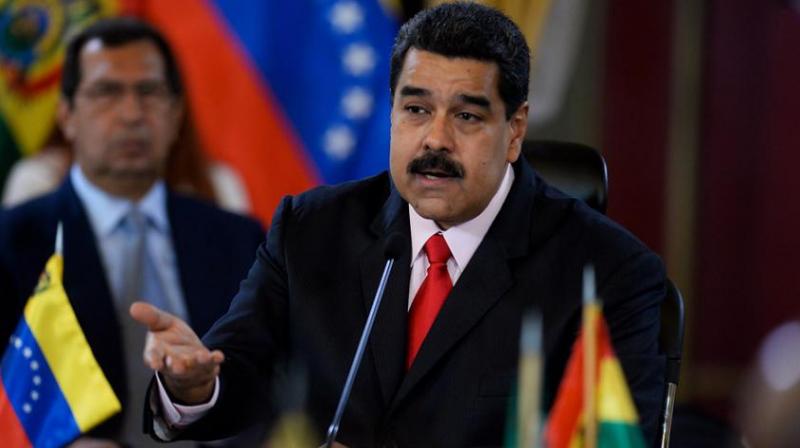Venezuela showdown looms over contested new assembly
Maduro has denied the accusation of an inflated turnout figure, dismissing it as a 'reaction by the international enemy'.

Carascas: Venezuela is headed for a fresh showdown as President Nicolas Maduro prepares to inaugurate a powerful new "Constituent Assembly" on Friday, with his opponents vowing massive protests and state prosecutors seeking to block him in court.
Maduro faces accusations at home and abroad of trampling on democracy with the election last weekend of the assembly in a vote boycotted by the opposition and allegedly marred by fraud.
Attorney General Luisa Ortega's office said on Twitter that state prosecutors had filed a case to block Friday's inauguration, "based on suspected crimes committed" during the election.
Ortega, one of Maduro's most vocal critics, has ordered an investigation into "scandalous" electoral fraud, after a British-based technology firm contracted for the vote, Smartmatic, said Maduro had exaggerated the turnout.
Since all candidates for the assembly were Maduro allies, turnout was the key gauge of public support. The 545-member assembly whose members include Maduro's wife and son will have sweeping powers to dissolve the opposition-majority congress, pass laws and write a new constitution. It was initially due to start work Thursday against a backdrop of opposition protests.
But Maduro rescheduled the inauguration to Friday, vowing the assembly would open "in peace and calm." His opponents responded by pushing back their protest, calling on Venezuelans to "defend the constitution."
For four months Venezuela has been in the grip of violent protests that have left more than 125 people dead as opposition demonstrators battle security forces and armed motorcycle gangs of Maduro supporters.
On Thursday, two people on motorbikes threw Molotov cocktails at the Spanish embassy in Caracas, causing no casualties. Prosecutors did not link the attack to the political tensions, though Madrid is a fierce critic of Maduro's moves in recent days.
Maduro insists the new assembly is the solution to a drawn-out economic and political crisis gripping Venezuela, whose 18-year-old, oil-fueled socialist economic model has been driven to the brink of collapse by a plunge in global crude prices.
The United States imposed direct sanctions on Maduro, calling him a "dictator," while the European Union joined the United States, Mexico, Colombia and Argentina in saying it would not recognize the new assembly.
Maduro has denied the accusation of an inflated turnout figure, dismissing it as a "reaction by the international enemy." Venezuela's pro-government electoral authority had claimed more than eight million voters took part 40 percent of the electorate.
The opposition says turnout was closer to 3.5 million, mostly state employees fearful for their jobs. More than 70 percent of Venezuelans oppose the new assembly, according to polling firm Datanalisis.
Maduro moved swiftly to consolidate his authority after the election. Two prominent opposition leaders were hustled off to jail in the middle of the night by armed members of the Venezuelan intelligence services.
Security forces and pro-government motorbike gangs actively stamped out public signs of dissent. Delcy Rodriguez, a former foreign minister who is now part of the new body, said the Constituent Assembly will kick the lawmakers out of the chamber they occupy in the legislative palace, take it over and "never leave."
Faced with mounting international outcry, Maduro on Wednesday named a new foreign minister to fill the newly elected Rodriguez's shoes: former vice president Jorge Arreaza.
Arreaza is married to the eldest daughter of late president Hugo Chavez Maduro's mentor, the father of Venezuela's socialist "revolution," and the architect of the 1999 constitution the new assembly will rewrite.
Several major Latin American nations have underlined their wariness over the direction they believed Venezuela was heading. On Thursday, Argentina called on its citizens to not take non-essential trips to Venezuela.
The Argentina foreign ministry said "cases of insecurity and violence perpetrated by governmental forces and confrontations with the civilian population" prompted its appeal.
Chile, meanwhile, said six Venezuelan opposition figures were taking refuge in its embassy in Caracas. Four of them were judges named by the opposition to sit on a parallel supreme court, to counter the high tribunal stacked with pro-Maduro magistrates.
The six were seeking diplomatic protection but no requests for asylum had been received, according to Chilean officials.

